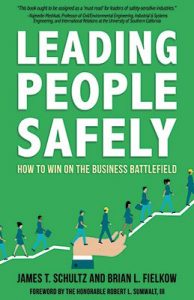You can do all the employee training you want, but not everything that happens in the field is preventable – no matter how good of a CEO you
The Internet is on fire with the recent United Airlines scandal in which a passenger was forcibly pulled off a plane after the airline had overbooked or oversold the flight. Following the event, United Airlines CEO Oscar Munoz issued a statement to his employees, which was met with harsh criticism from the public.
People took to the Internet to express their opinions about how United mishandled the situation and vowed to never fly the airline again. In truth, in a week or two this whole matter will be forgotten and people will move on. While this is fresh on our minds, let’s examine what occurred and determine how we can all learn from it. As business leaders, we’re all subject to analogous leadership failures in our companies. Our failures may not be in the public eye but none of us is immune. Now is the time to understand the lessons we can learn from this event because we’re all vulnerable.
- Never Compromise Your Core Values. No matter how difficult the situation, leaders must always act in line with company values. Values bind our organization together. They are immutable. If leaders do not act in accordance with stated values, it creates confusion among employees and customers. United has well defined set of core values:
• “Warm and welcoming is who we are”
• We “make decisions with facts and empathy”
• We earn trust by doing things the right way”
United’s actions were inconsistent with their stated values. Mr. Munoz’s letter to his employees failed to address the gap between the company’s actions and its values. Mr. Munoz created confusion among its employees and customers. It makes an outsider wonder if United is a company that lives and breathes its values or if its values simply are just a marketing and PR function.
Leadership Lesson: In each of our businesses, there are times that our employees and we as leaders may not act in line with our company values. The risk of this happening is magnified during demanding situations. If integrity is a core value, don’t lie to a customer during the time of a product or service failure. If respect is a core value, don’t allow a manager to belittle or scold employees. One of the leader’s most important roles is to embody the company’s values and ensure that they are always upheld, especially in a time of crisis.
- Demonstrate Accountability. When things go wrong, it is easy to look for someone else to blame. The customer is not always right, and sometimes the customer may have contributed to a problem. That said, don’t blame them. The bulk of Munoz’s letter focused on the customer’s actions instead of the company’s actions. Munoz stated: The customer “was approached a few more times…in order to gain his compliance to come off the aircraft, and each time he refused and became more and more disruptive and belligerent.”
While the video and passenger testimony suggests that Mr Munoz’s description of the situation was not entirely accurate, it really does not matter. What matters is that Munoz’ letter deflected much of United’s accountability for this situation away from his company and toward a customer. The customer may have become belligerent, but that does not excuse United from being accountable as a warm, welcoming and empathic organization as defined in its value statement.
Leadership Lesson: When your organization faces adversity, don’t look for someone else to blame. Look in the mirror. Don’t allow anyone in your company to deflect responsibility. Doing this creates a culture where your company is not forced to own its shortcomings and engage in the often-difficult task of continuous improvement. As leaders, we cast enormous shadows. If we demonstrate a lack of accountability and are quick to blame, the rest of the team will follow suit.
- Anticipate what can go wrong. It’s not a stretch of the imagination to envision a scenario where a passenger becomes very upset if he or she is denied boarding (especially when already seated). What other actions could have been taken to diffuse this situation, short of dragging an innocent person off the plane? Were employees empowered to raise the compensation to a higher level? For instance, had United diffused the situation by raising passenger compensation from $1000 to $1500, it would have been a small price to pay in lieu of the current PR nightmare.
Leadership Lesson: Think about likely (and sometimes unavoidable) points of failure in your business. Train your team to anticipate them. Empower your front lines to take care of the customer, or know when to escalate to management. It is critical that our employees understand likely points of failure and how to diffuse demanding situations. Keep it simple and understandable. In my company, we have published a “Customer Bill of Rights” and tips for dealing with difficult customer situations. Their purpose is to clearly convey how our customers will be treated and to ensure employees know they are empowered prevent a situation from escalating. The incident itself is rarely the problem. It’s the quality and level of the company’s response that defines who you are to your employees and customers.
- You can’t walk it back. A day after Mr. Munoz issued his tepid response to the incident, he issued a much more appropriate reply. In his first reply, Munoz focused on an apology for having to re-accommodate customers and on the “disruptive and belligerent” passenger. A day later, he said:
“The truly horrific event that occurred on this flight has elicited many responses from all of us: outrage, anger, disappointment. I share all of those sentiments, and one above all: my deepest apologies for what happened. Like you, I continue to be disturbed by what happened on this flight and I deeply apologize to the customer forcibly removed and to all the customers aboard. No one should ever be mistreated this way.”
By the time the second and more appropriate statement was issued, it was too late. It was assumed by many readers that the statement was an attempt at damage control.
Leadership Lesson: If this could happen to the CEO of a major public company, staffed with public relations experts, it could happen to any one of us. When we are pressed to provide information to our customers, employees or stakeholders and we don’t have all the facts, it’s best not to rush into a reply. We would be well advised to acknowledge the request for response and indicate that it will be forthcoming. Then, take time to gather the facts and craft a thoughtful reply. Sleep on it. We’ve all sent that email that we wish in hindsight that we would not have sent. Equally important, consider that your message may be well-intended but poorly received. It’s not about what you say—it’s about how the message is received.
- Be human. Munoz’s initial response was sterile. It showed no compassion and lacked empathy (a United core value). Munoz could have stood behind his employees and at the same time shown compassion for the passenger. Instead, his letter defended his employees and blamed the customer. This was in the face of a viral video showing a bloodied passenger being dragged from the plane. The tone of Munoz’s letter was out of sync with the reality of what happened.
Leadership Lesson: When your organization experiences a product or service failure, make sure your employees understand how that failure impacts the customer. In my logistics company, our employees must understand that a late delivery could have a far-reaching impact. Whether the late delivery was preventable or not, our first response must be to empathize with the customer. Understand that the customer is upset. Walk in their shoes. When triaging a difficult problem, above all recognize the human factor. Something went wrong and a customer is justifiably upset. Address the emotion first – the basic human need to be heard and to know that your company cares. Once the customer is heard and knows that you truly care, then you can dig deeper into causation and individual or systemic remediation. Your customer may even partner with you in that process because you showed that you truly care.

 Brian Fielkow is CEO of Jetco Delivery, a freight and logistics company based in Houston, Texas. As a keynote speaker and executive leadership advisor, Brian shares his best-practices for building a healthy company and a safety-focused corporate culture. He is author of “Driving to Perfection: Achieving Business Excellence by Creating a Vibrant Culture” and co-author of “Leading People Safely: How to Win on the Business Battlefield.” Brian can be found at www.brianfielkow.com.
Brian Fielkow is CEO of Jetco Delivery, a freight and logistics company based in Houston, Texas. As a keynote speaker and executive leadership advisor, Brian shares his best-practices for building a healthy company and a safety-focused corporate culture. He is author of “Driving to Perfection: Achieving Business Excellence by Creating a Vibrant Culture” and co-author of “Leading People Safely: How to Win on the Business Battlefield.” Brian can be found at www.brianfielkow.com.

 Brian Fielkow is CEO of Jetco Delivery, a freight and logistics company based in Houston, Texas. As a keynote speaker and executive leadership advisor, Brian shares his best-practices for building a healthy company and a safety-focused corporate culture. He is author of “Driving to Perfection: Achieving Business Excellence by Creating a Vibrant Culture” and co-author of “Leading People Safely: How to Win on the Business Battlefield.” Brian can be found at www.brianfielkow.com.
Brian Fielkow is CEO of Jetco Delivery, a freight and logistics company based in Houston, Texas. As a keynote speaker and executive leadership advisor, Brian shares his best-practices for building a healthy company and a safety-focused corporate culture. He is author of “Driving to Perfection: Achieving Business Excellence by Creating a Vibrant Culture” and co-author of “Leading People Safely: How to Win on the Business Battlefield.” Brian can be found at www.brianfielkow.com.